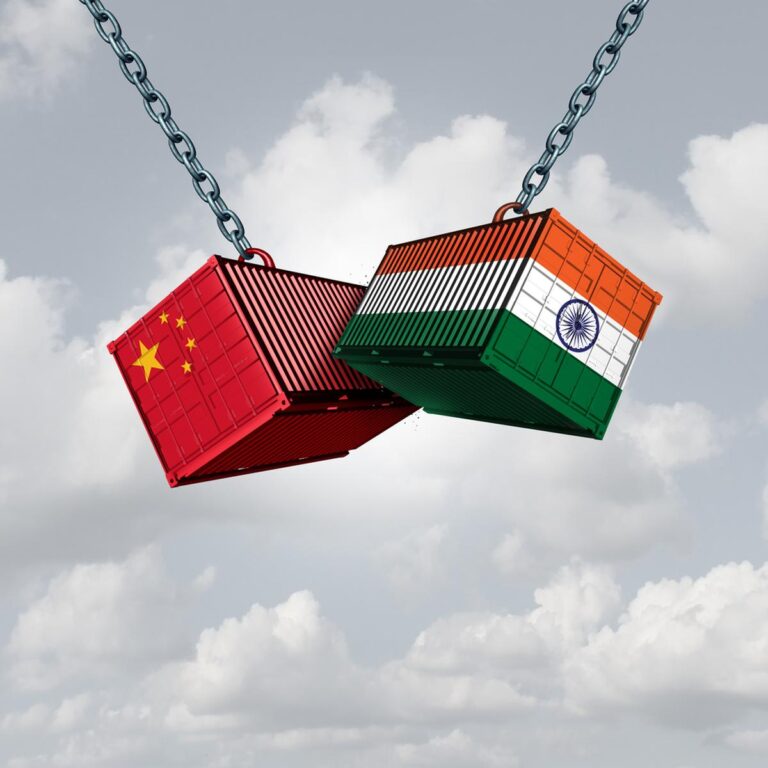
In a bid to safeguard its industry, India has slapped an anti-dumping duty on Chinese imports of Titanium Dioxide (TiO₂).
The move, announced on May 10, 2025, through a Ministry of Finance notification (12/2025-Customs), is designed to save Indian manufacturers from dumping imports that have been crippling local industries.
Titanium Dioxide, a critical white pigment found in paints, plastics, fabric, and paper, is crucial to numerous industries. With this decision to level the playing field, India is making sure domestic manufacturers are on an even keel. A closer examination follows of this choice, its effect, and how it will affect Indian industry.
Titanium Dioxide is an important component of products such as wall paints, plastic items, and printed fabrics, and hence it is essential for industries in India. Chinese exporters have, however, been dumping TiO₂ in India at prices much lower than their domestic market price—a process referred to as “dumping.”
The Directorate General of Trade Remedies (DGTR), India’s trade investigative authority, held the view that these inexpensive imports were inflicting “material injury” on Indian TiO₂ producers. The cheap prices squeezed margins, lowered market share, and imposed financial strain on indigenous companies.
Against this, the government has levied anti-dumping duties between USD 460 and USD 681 per metric tonne, varying with the Chinese producer or exporter. The duty is on TiO₂ with tariff codes 2823 00 10, 3206 11 10, and 3206 11 90 and for a duration of five years unless altered in advance.
The payments will be made in Indian Rupees, according to the government’s exchange rate at the time of import. The duty is aimed at firms such as Anhui Gold Star, Shandong Jinhai, and LB Xiangyang, among other “non-sampled cooperative producers” in China.
The anti-dumping duty is aimed at TiO₂ applied as a pigment in industries such as paints, plastics, paper, and textiles (including printing on fabrics). Not all imports of TiO₂ are subject to the duty, though.
Products applied in food coloring, pharmaceuticals, sunscreens, cosmetics, and certain textile or nanotechnology uses are exempted. This is so that industries dependent on expert TiO₂ can keep on sourcing without increased costs, yet safeguard the larger domestic pigment market.
Effect on Indian Industries
The anti-dumping duty is a game-changer for Indian producers, presenting opportunities and challenges:
- Boost for Domestic Producers
By increasing the cost of Chinese TiO₂, the duty provides Indian manufacturers with an opportunity to compete equally. Players such as Travancore Titanium Products and KMML, supplying TiO₂ for plastics and paints, are able to take back market share and stabilize operations.
This supports employment generation and enhances industrial hubs such as Sri City and Aurangabad, where TiO₂-based industries are thriving.
- Increased Costs for Some Industries
Manufacturing sectors such as paints and textiles, which depend on TiO₂, will have to bear increased raw material prices if they switch to indigenous or non-China suppliers. SMEs in the textile industry in Bhiwandi, for example, can expect temporary price increases.
Nevertheless, the tariff promotes long-term investment in the production of local TiO₂, which is likely to put a cap on prices in the long run.
- Facilitation of Make in India
The responsibility is in line with the Make in India program, which seeks to position India as a global manufacturing center by 2025. By safeguarding domestic industries, it brings in investment and minimizes dependence on imports.
This is important since India’s manufacturing industry is expected to grow to USD 1 trillion by 2025-26, led by industries such as chemicals and textiles.
Dumping is injurious to domestic industries as it swamps markets with inexpensive products, pricing out local manufacturers. The DGTR probe established a direct connection between Chinese imports of TiO₂ and the plight of Indian manufacturers.
By invoking the duty, India is upholding equitable trade practices in accordance with World Trade Organization (WTO) norms. It shields not only producers of TiO₂ but also the tens of millions of jobs in industries such as paints, plastics, and textiles.
The move also sends a powerful signal to the world: India stands firm in protecting its economy. As supply chains around the world get disrupted, trade remedies such as anti-dumping duties protect economic equilibrium and industrial viability.
This is India’s trend of defending strategic sectors, with 28% of trade remedy actions in 2023 being aimed at Chinese products.
While the responsibility bolsters domestic manufacturers, it can increase prices for industries that are dependent on TiO₂, particularly SMEs with limited resources.
The government can counter this by providing subsidies or relaxation in credit availability through schemes such as the Credit Linked Capital Subsidy Scheme (CLCSS). Moreover, Indian manufacturers of TiO₂ need to scale up capacity to supply demand, which calls for investment in technology and human skills.
The five-year duration of the duty gives stability, but industries need to employ the period to innovate and compete internationally.
Government schemes such as the Production Linked Incentive (PLI) scheme can aid TiO₂ sectors such as chemicals for enhancing production and export.
India’s anti-dumping duty on Chinese imports of Titanium Dioxide is a firm step to safeguard its local industry and ensure fair trade. By protecting TiO₂ manufacturers from unfair trade, the government is encouraging development in paints, plastics, and textiles, supporting millions of jobs and the Make in India initiative.
Though issues such as increased costs are there, the long-term gains—more robust industries, greater investment, and economic resilience—are evident.
